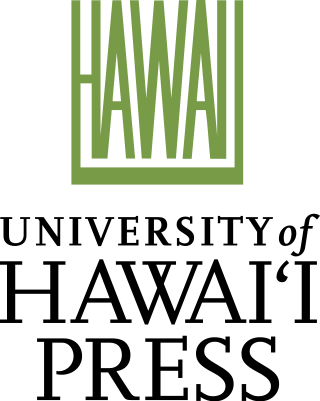
Interdisciplinarity or interdisciplinary studies involves the combination of multiple academic disciplines into one activity. It draws knowledge from several other fields like sociology, anthropology, psychology, economics, etc. It is about creating something by thinking across boundaries. It is related to an interdiscipline or an interdisciplinary field, which is an organizational unit that crosses traditional boundaries between academic disciplines or schools of thought, as new needs and professions emerge. Large engineering teams are usually interdisciplinary, as a power station or mobile phone or other project requires the melding of several specialties. However, the term "interdisciplinary" is sometimes confined to academic settings.
Musicology is the scholarly analysis and research-based study of music. Musicology departments traditionally belong to the humanities, although some music research is scientific in focus. Some geographers and anthropologists have an interest in musicology, so the social sciences also have an academic interest. A scholar who participates in musical research is a musicologist.

Physical geography is one of the three main branches of geography. Physical geography is the branch of natural science which deals with the processes and patterns in the natural environment such as the atmosphere, hydrosphere, biosphere, and geosphere. This focus is in contrast with the branch of human geography, which focuses on the built environment, and technical geography, which focuses on using, studying, and creating tools to obtain,analyze, interpret, and understand spatial information. The three branches have significant overlap, however.

Research is "creative and systematic work undertaken to increase the stock of knowledge". It involves the collection, organization and analysis of evidence to increase understanding of a topic, characterized by a particular attentiveness to controlling sources of bias and error. These activities are characterized by accounting and controlling for biases. A research project may be an expansion on past work in the field. To test the validity of instruments, procedures, or experiments, research may replicate elements of prior projects or the project as a whole.

In academic publishing, a scientific journal is a periodical publication intended to further the progress of science, usually by sharing findings from research with readers. They are normally specialized based on discipline, with authors picking which one they send their manuscripts to.
Music history, sometimes called historical musicology, is a highly diverse subfield of the broader discipline of musicology that studies music from a historical point of view. In theory, "music history" could refer to the study of the history of any type or genre of music. In practice, these research topics are often categorized as part of ethnomusicology or cultural studies, whether or not they are ethnographically based. The terms "music history" and "historical musicology" usually refer to the history of the notated music of Western elites, sometimes called "art music".

An academic journal or scholarly journal is a periodical publication in which scholarship relating to a particular academic discipline is published. Academic journals serve as permanent and transparent forums for the presentation, scrutiny, and discussion of research. They nearly universally require peer review or other scrutiny from contemporaries competent and established in their respective fields. Content typically takes the form of articles presenting original research, review articles, or book reviews. The purpose of an academic journal, according to Henry Oldenburg, is to give researchers a venue to "impart their knowledge to one another, and contribute what they can to the Grand design of improving natural knowledge, and perfecting all Philosophical Arts, and Sciences."
Educational research refers to the systematic collection and analysis of data related to the field of education. Research may involve a variety of methods and various aspects of education including student learning, interaction, teaching methods, teacher training, and classroom dynamics.

Biogeochemistry is the scientific discipline that involves the study of the chemical, physical, geological, and biological processes and reactions that govern the composition of the natural environment. In particular, biogeochemistry is the study of biogeochemical cycles, the cycles of chemical elements such as carbon and nitrogen, and their interactions with and incorporation into living things transported through earth scale biological systems in space and time. The field focuses on chemical cycles which are either driven by or influence biological activity. Particular emphasis is placed on the study of carbon, nitrogen, sulfur, iron, and phosphorus cycles. Biogeochemistry is a systems science closely related to systems ecology.

In archaeology, rock art is human-made markings placed on natural surfaces, typically vertical stone surfaces. A high proportion of surviving historic and prehistoric rock art is found in caves or partly enclosed rock shelters; this type also may be called cave art or parietal art. A global phenomenon, rock art is found in many culturally diverse regions of the world. It has been produced in many contexts throughout human history. In terms of technique, the four main groups are:

Google Scholar is a freely accessible web search engine that indexes the full text or metadata of scholarly literature across an array of publishing formats and disciplines. Released in beta in November 2004, the Google Scholar index includes peer-reviewed online academic journals and books, conference papers, theses and dissertations, preprints, abstracts, technical reports, and other scholarly literature, including court opinions and patents.
Native American studies is an interdisciplinary academic field that examines the history, culture, politics, issues, spirituality, sociology and contemporary experience of Native peoples in North America, or, taking a hemispheric approach, the Americas. Increasingly, debate has focused on the differences rather than the similarities between other Ethnic studies disciplines such as African American studies, Asian American Studies, and Latino/a Studies.

Chemistry education is the study of teaching and learning chemistry. It is one subset of STEM education or discipline-based education research (DBER). Topics in chemistry education include understanding how students learn chemistry and determining the most efficient methods to teach chemistry. There is a constant need to improve chemistry curricula and learning outcomes based on findings of chemistry education research (CER). Chemistry education can be improved by changing teaching methods and providing appropriate training to chemistry instructors, within many modes, including classroom lectures, demonstrations, and laboratory activities.

The Social Sciences Citation Index (SSCI) is a commercial citation index product of Clarivate Analytics. It was originally developed by the Institute for Scientific Information from the Science Citation Index. The Social Sciences Citation Index is a multidisciplinary index which indexes over 3,400 journals across 58 social science disciplines – 1985 to present, and it has 122 million cited references – 1900 to present. It also includes a range of 3,500 selected items from some of the world's finest scientific and technical journals. It has a range of useful search functions such as ‘cited reference searching’, searching by author, subject, or title. Whilst the Social Sciences Citation Index provides extensive support in bibliographic analytics and research, a number of academic scholars have expressed criticisms relating to ideological bias and its English-dominant publishing nature.

The University of Hawaiʻi Press is a university press that is part of the University of Hawaiʻi.

The Web of Science is a paid-access platform that provides access to multiple databases that provide reference and citation data from academic journals, conference proceedings, and other documents in various academic disciplines. It was originally produced by the Institute for Scientific Information. It is currently owned by Clarivate.

A review article is an article that summarizes the current state of understanding on a topic within a certain discipline. A review article is generally considered a secondary source since it may analyze and discuss the method and conclusions in previously published studies. It resembles a survey article or, in news publishing, overview article, which also surveys and summarizes previously published primary and secondary sources, instead of reporting new facts and results. Survey articles are however considered tertiary sources, since they do not provide additional analysis and synthesis of new conclusions. A review of such sources is often referred to as a tertiary review.

An academic discipline or academic field is a subdivision of knowledge that is taught and researched at the college or university level. Disciplines are defined and recognized by the academic journals in which research is published, and the learned societies and academic departments or faculties within colleges and universities to which their practitioners belong. Academic disciplines are conventionally divided into the humanities, including language, art and cultural studies, and the scientific disciplines, such as physics, chemistry, and biology; the social sciences are sometimes considered a third category.

Cybernetics is a wide-ranging field concerned with circular causal processes such as feedback. Norbert Wiener named the field after an example of circular causal feedback—that of steering a ship where the helmsman adjusts their steering in response to the effect it is observed as having, enabling a steady course to be maintained amongst disturbances such as cross-winds or the tide.

The National Library of Economics is the world's largest research infrastructure for economic literature, online as well as offline. The ZBW is a member of the Leibniz Association and has been a foundation under public law since 2007. Several times the ZBW received the international LIBER Award for its innovative work in librarianship. The ZBW allows for access of millions of documents and research on economics, partnering with over 40 research institutions to create a connective Open Access portal and social web of research. Through its EconStor and EconBiz, researchers and students have accessed millions of datasets and thousands of articles. The ZBW also edits two journals: Wirtschaftsdienst and Intereconomics.













